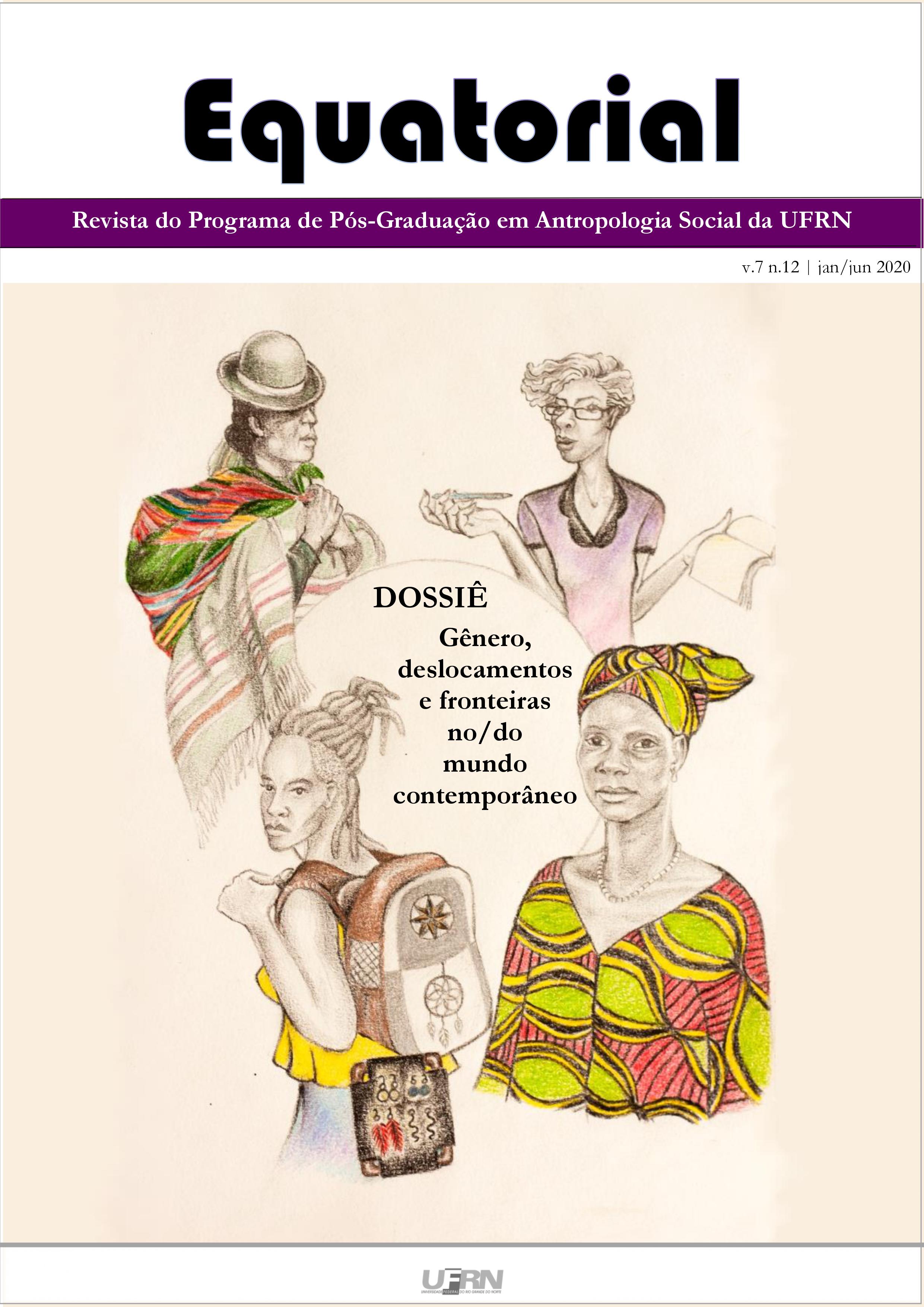"Imported outbreak": crisis migrations in Brazil in the 2010's
DOI:
https://doi.org/10.21680/2446-5674.2020v7n12ID18612Keywords:
migração; refúgio; saúde; nação; raça:Abstract
This paper aims to analyze the economy of distribution of differences among migrants in Brazil in the 2010’s. To that end, we analyze the case of the Haitians and Venezuelans. The empirical material consists of news reports regarding the arrival of these people in Brazil, in which perceptions of policy makers, politicians, NGOs and Brazilians themselves are shown, especially the ones focusing on alleged risks that these migrants bring to health in Brazil. Both the Haitian and Venezuelan flows in the country are good empirical examples of the production of symbolic boundaries constructed within the image of these migrants. The association between some nationalities and certain pathologies, along with the metaphors of danger used when describing the mass of migrants - “invasion”, “collapse”, “catastrophe” – constitute a turning point in the construction of a hegemonic discourse about Brazil as an exemplary accommodator of racial, ethnic and cultural differences.
Downloads
References
ANKER, Deborah E. [e] LUFTIN, Paul T. (01/03/2003), Gender and the Symbiosis Between Refugee Law and Human Rights Law. Migration Policy Institute, Migration Information Source. Disponível (on-line) em: http://www.migrationpolicy.org/article/gender-and-symbiosis-between-refugee-law-and-human-rights-law
BRASIL, MINISTÉRIO DA JUSTIÇA. Refúgio em números. 3ª edição. 2017.
CLARO, Carolina. A proteção dos “Refugiados Ambientais” no Direito Internacional. 2015, p.71. Disponível em: <http://www.teses.usp.br/teses/disponiveis/2/2135/tde-08042016-155605/pt-br.php> Acesso em: 10 de agosto de 2019.
COLLINS, Patricia Hill. 2015. Intersectionality's definitional dilemmas. Annual review of sociology, 41, pp.1-20.
COSTA, Sérgio. A construção sociológica da raça no Brasil. Estud. afro-asiáticos. [online]. 2002, vol.24, n.1, pp.35-61. Disponível em: < http://dx.doi.org/10.1590/S0101-546X2002000100003>.
FACUNDO NAVIA, Angela. (2014), Êxodos e refúgios: Colombianos refugiados no Sul e Sudeste do Brasil. Tese (doutorado), PPGAS, UFRJ.
GUIMARÃES, Antonio Sérgio Alfredo. (2003), Como trabalhar com “raça” em sociologia. Educação e Pesquisa, Vol. 29, nº 01, pp. 93-108.
NOGUEIRA, Oracy. (2007) Preconceito racial de marca e preconceito racial de origem. pp. 287-308
SEYFERTH, Giralda. 1995. A invenção da raça e o poder discricionário dos estereótipos. Anuário Antropológico/93. Rio de Janeiro: Tempo Brasileiro.
TICKTIN, Miriam. (2011), The Gendered Human of Humanitarism: Medicalizing and Politicizing Sexual Violence. Gender and History, Vol. 23, nº 2, pp. 250-265.
UNHCR. Perfil socioeconômico dos refugiados no Brasil. (Resumo executivo) 2018.
________. Global Trends: forced displacement in 2016. The UN Refugee Agency, 2017. [acessado 2019 Ago 10] Disponível em: www.unhcr.org/statistics/unhcrstats/5943e8a34/global-trends-forced-displacement-2016.html
Downloads
Published
How to Cite
Issue
Section
License
Autores mantém os direitos autorais e concedem à revista o direito de primeira publicação, com o trabalho simultaneamente licenciado sob a Licença Creative Commons Attribution que permite o compartilhamento do trabalho com reconhecimento da autoria e publicação inicial nesta revista.

 Português (Brasil)
Português (Brasil) English
English Español (España)
Español (España)


